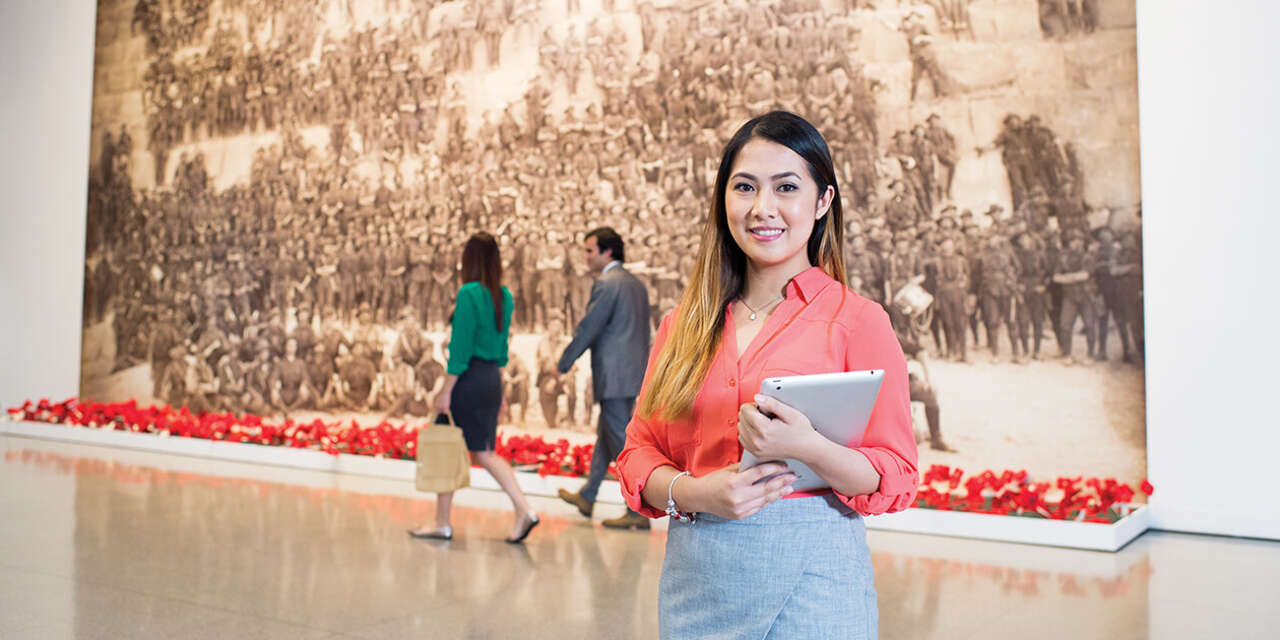Overview
Overview
By studying history, you will gain an understanding of how societies experienced the past and how this shapes the world we live in today.
You’ll learn about the forces that have influenced the modern world, including nationalism, democracy, conflict and war, and gender and sexuality.
In this course you’ll have the opportunity to study and apply various approaches to researching and writing history.
History graduates contribute to addressing a wide range of society’s most complex issues. Studying history develops your skills to identify and critically interpret evidence and enables you to explain the causes and consequences of political, environmental and social change. These skills are essential for a range of careers.
History is offered as a major in the Bachelor of Arts. You can also study History as part of a specialisation and as an elective.
You can study this major as part of a Bachelor of Arts, Bachelor of Commerce double degree.
How this course will make you industry ready
You'll gain critical thinking, analytical and communication skills that are essential to a range of careers.
You'll reflect critically on diverse ideas and develop your problem-solving, intellectual and interpersonal skills.
You'll have opportunities to engage with industry and gain valuable networking experience.
What jobs can the History course lead to?
Careers
- Historian
- Research officer
- Archivist
- Policy advisor
- Heritage consultant
- Data manager
- Museum curator
- Secondary school teacher (requires a postgraduate teaching qualification)
Industries
- Non-government organisations
- Local, state and federal government
- Defence and security
- Environmental and mining industries
- Media, arts and creative industries
- Education
- Tourism
- Consulting
What you'll learn
- demonstrate an understanding of the theoretical underpinnings of the discipline of history, and an ability to apply an historical perspective
- demonstrate the ability to think critically, creatively and reflectively within the history discipline and across disciplinary boundaries
- demonstrate the ability to locate and analyse information from a range of sources
- demonstrate the ability to communicate effectively in writing and orally to diverse audiences in ways appropriate in history
- demonstrate the ability to use a variety of technologies and to select the appropriate ones to use to solve problems or communicate information
- show sustained intellectual curiosity by taking responsibility for one's own learning and intellectual development through the recognition of a range of learning strategies including small group, student-centred activities
- demonstrate the capacity to understand how society has changed historically
- appreciate the importance of historical knowledge in contributing to an understanding of cultural diversity and human rights
- demonstrate the ability to conduct ethical research using the most relevant theories and approaches in the field of history

